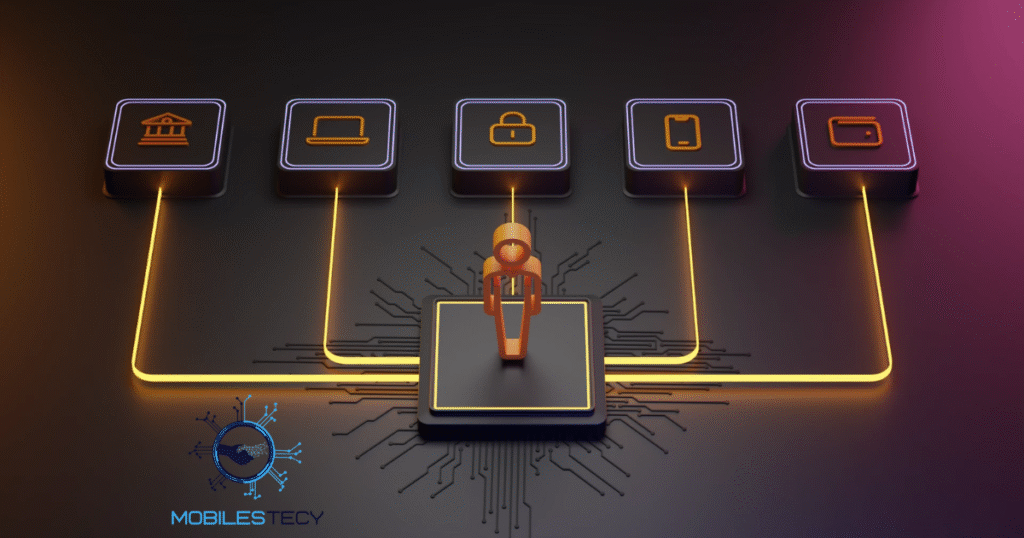ICF Technology Authorization plays a vital role in modern SAP environments. It ensures communication services are secure, efficient, and properly managed. Without proper authorizations, systems risk misuse, data loss, or security breaches. SAP introduced specific authorization objects to control access for different users. These authorizations protect sensitive web-based services and system communication interfaces effectively.
In today’s digital economy, secure communication is essential for global businesses. ICF technology authorization enables seamless interaction between SAP systems and external platforms. However, unrestricted access to these services can endanger operational security greatly. Authorization objects manage user rights, ensuring safety without limiting productivity. This balance makes ICF authorizations critical for both administrators and organizations.
The concept of authorization reflects SAP’s commitment to governance and compliance. ICF Technology Authorization defines who can configure, monitor, or consume services. Such control maintains system integrity while enabling transparent business communication processes. Organizations depend on these rules for operational security and regulatory adherence. Ultimately, authorization protects systems while empowering users with appropriate communication capabilities.
Understanding ICF Technology

ICF, or Internet Communication Framework, is an essential component in SAP environments used to enable web-based communication services. It acts as a communication layer that allows SAP systems to interact seamlessly with both internal and external applications. By facilitating smooth data exchange and service integration, ICF supports a wide range of modern SAP web services. Without it, many web-enabled business processes in SAP would not operate effectively.
ICF Technology Authorization supports multiple communication protocols such as HTTP, HTTPS, and SOAP. These protocols ensure secure and structured data transfer between integrated platforms. System administrators manage ICF services through the SAP transaction SICF, where they configure virtual hosts and service nodes. Proper authorization is critical at each of these elements to safeguard system access and maintain secure communication channels.
The authorization model ensures that only authorized users can configure or modify ICF services. SAP assigns specific authorization objects to control user permissions and limit administrative privileges. This security approach helps prevent unauthorized access, misconfiguration, or misuse of communication services. Users are granted only the rights necessary for their role, maintaining both system protection and functional flexibility.
Key Authorization Objects
The core of ICF Technology Authorization lies within specific SAP objects. S_ICF grants permission to access services managed within ICF nodes. It ensures users can activate or consume defined services securely. This protects the environment from unauthorized or accidental service usage.
S_ICF_ADM governs administrative tasks for configuring ICF virtual hosts. This includes creating, modifying, or deactivating system communication services. Users with this authorization can adjust system connectivity as required. However, it should be limited only to highly trusted administrators.
Role of Authorization in Security

Authorization prevents unauthorized individuals from exploiting sensitive system interfaces. By limiting access, organizations ensure business-critical data remains well-protected. Improper assignments may expose companies to cyberattacks or data breaches. Therefore, authorization plays a central role in SAP system security. It is equally vital for meeting compliance and regulatory standards.
In large organizations, employees have varying roles and responsibilities. Authorization ensures each person receives only necessary levels of access. This principle, known as least privilege, reduces security-related vulnerabilities. The stricter the authorization, the stronger the communication system remains. Such measures create efficient workflows with minimal risks involved.
Businesses must adopt authorization policies aligning with governance and compliance. Proper authorization ensures operational transparency across different organizational units. This reduces the likelihood of malicious misuse of ICF services. Regular audits help verify whether users hold appropriate authorization roles. Such checks maintain security while improving accountability in SAP systems.
ICF in Practical Use
ICF authorizations are applied whenever users activate or consume services. For example, enabling HTTPS service requires both technical and authorization approval. Administrators configure system nodes through SICF while authorization enforces control. This dual process ensures better governance and stronger communication security.
Similarly, monitoring activities require proper access to debugging tools. S_ICFREC authorization grants permission to use the ICF recorder. This tool captures service requests for testing or diagnostic analysis. Without authorization, sensitive monitoring data may fall into wrong hands.
Administrative Controls

Administrators need specific controls to configure and secure ICF properly. S_ADMIN_FCD ensures only certain users can call SICF transactions. This prevents inexperienced staff from unintentionally disrupting essential services. Such restrictions improve system stability and protect business-critical communication layers.
Administrative authorization also allows maintaining virtual hosts and service paths. This level of control requires knowledge of SAP system operations. Improper configuration could lead to downtime, risks, or security gaps. Therefore, only trusted administrators should hold full ICF administrative rights.
Best Practices in ICF Technology Authorization
Organizations must implement authorization with clear policies and structured assignments. Roles should be defined according to business functions and responsibilities. Every user receives permissions aligned with their daily operational tasks. Such mapping improves productivity while preserving system-level security measures. This method ensures a balance between usability and security priorities.
Regular audits should validate assigned authorizations across the organization. By reviewing users, administrators prevent unnecessary or excessive access rights. Audit reports highlight gaps where authorization policies may be too broad. These insights help refine governance strategies for long-term effectiveness. Continuous monitoring is essential for detecting risks in real-time.
Training employees on security awareness strengthens ICF authorization further. Staff understand their boundaries and respect sensitive access restrictions. Documenting policies ensures clarity about roles and responsibilities systemwide. This helps businesses avoid confusion during role changes or transfers. Ultimately, training complements authorization for better organizational resilience.
Future Outlook

ICF Technology Authorization will continue evolving with cybersecurity advancements. SAP may introduce smarter controls for managing access and user rights. Artificial intelligence could automate monitoring of suspicious authorization patterns. Such improvements reduce risks and strengthen governance in complex organizations.
The future highlights greater integration with cloud-based SAP solutions. ICF authorizations will protect hybrid communication services across multiple environments. Flexible authorization structures will support global businesses operating at scale. Thus, ICF Technology Authorization remains crucial for digital transformation success.
- ICF authorizations define secure access for communication services in SAP.
- S_ICF grants permissions for consuming or activating service nodes securely.
- S_ICF_ADM governs administrative tasks for creating and maintaining virtual hosts.
- Audits and reviews ensure users only hold necessary system authorization rights.
- Training employees improves awareness, reducing risks of unauthorized system use.
Faq’s
What is ICF Technology Authorization in SAP systems?
It is the process of granting controlled access to ICF services. It ensures system communication channels remain secure and protected from misuse.
Why is ICF Authorization important for businesses?
It prevents unauthorized access, ensuring data safety and compliance requirements. Organizations rely on strict authorizations to maintain stable, trusted environments.
What are the key authorization objects in ICF?
Important objects include S_ICF, S_ICF_ADM, S_ICFREC, and S_ADMIN_FCD. Each object manages different aspects of access and administrative functions.
How can organizations manage ICF authorization effectively?
They assign roles carefully, apply least privilege, and conduct audits. Regular monitoring ensures compliance and prevents misuse of sensitive system rights.
Does ICF Technology Authorization impact cloud or hybrid environments?
Yes, it secures communication for cloud-based SAP integrations as well. This ensures consistent governance across on-premise and remote cloud environments.
Conclusion
ICF Technology Authorization secures communication services within SAP environments effectively. It protects sensitive data while supporting reliable business-to-business interactions. Through authorization, administrators limit access and prevent harmful misuse. Such strategies reduce risks, safeguard operations, and ensure smooth workflows. Overall, it remains vital for system security and governance success.
Proper implementation of ICF Authorization requires structured policies and trained personnel. Businesses must define roles based on functional and operational responsibilities. Regular audits and reviews prevent privilege misuse and ensure regulatory compliance. Monitoring tools help organizations stay updated about potential risks quickly. Together, these practices strengthen overall communication security within SAP systems.
The future of ICF Authorization involves smarter, more adaptive security controls. AI-driven monitoring will enhance protection against unauthorized or unusual activities. Cloud-based integration requires advanced authorization to handle hybrid complexities. Global organizations must rely on structured authorization for smooth communication. Thus, ICF Authorization remains central to SAP’s long-term digital innovation.
Read more latest Articles on Mobilestecy.com








